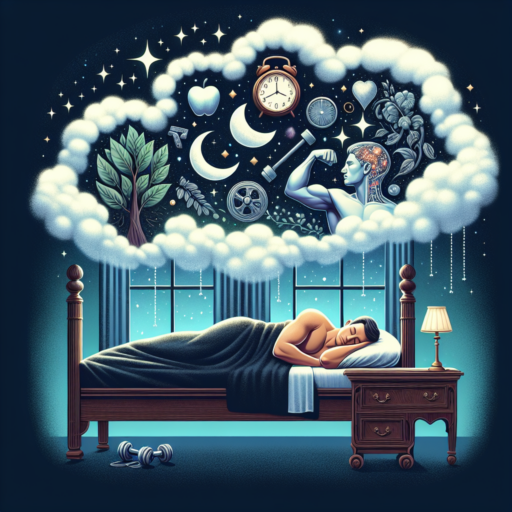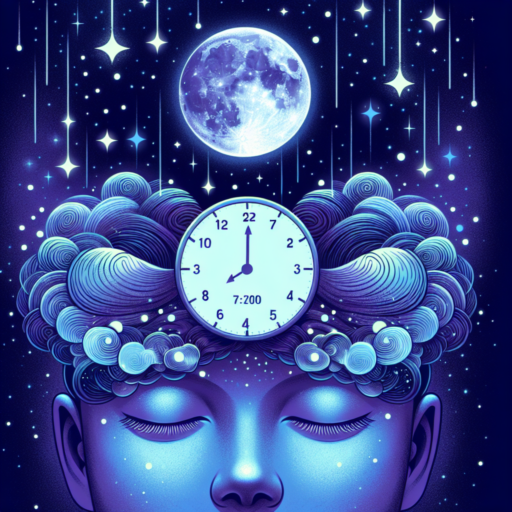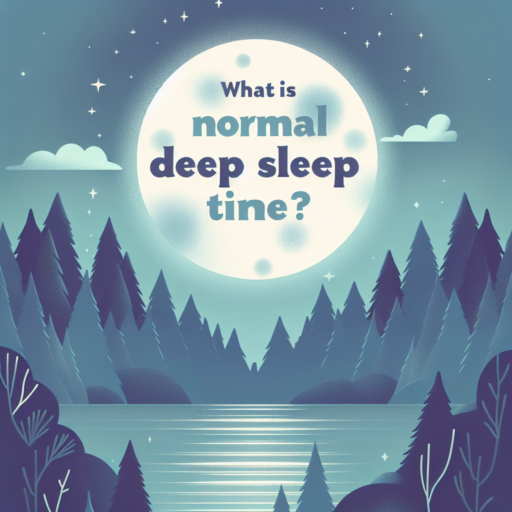What is a good amount of deep sleep?
Understanding the right amount of deep sleep you need is crucial for maintaining optimal health and well-being. Deep sleep, or slow-wave sleep, is the most restorative phase of sleep where the body repairs itself, builds bone and muscle, and strengthens the immune system. Most adults require between 1.5 to 2 hours of deep sleep per night, which accounts for about 20% to 25% of total sleep. However, this need may vary based on individual factors such as age, physical activity levels, and overall health.
Factors Influencing Deep Sleep Requirements
The amount of deep sleep you need can be influenced by various factors. Age plays a significant role, with younger individuals requiring more deep sleep for growth and development. Conversely, older adults may notice a decrease in deep sleep duration. Lifestyle and daily activities also impact your deep sleep needs. Engaging in high levels of physical or mental activity during the day can increase the body’s requirement for restorative sleep to recover adequately.
Enhancing Your Deep Sleep Quality
Improving the quality of your deep sleep can be as important as increasing the duration. Ensuring a consistent sleep schedule, reducing exposure to blue light before bedtime, and creating a comfortable sleep environment can significantly enhance deep sleep quality. Additionally, avoiding caffeine and large meals before bedtime can contribute to uninterrupted sleep cycles, allowing for more consistent deep sleep periods.
Is 3 hours deep sleep good?
When discussing sleep quality, the conversation often turns towards the significance of deep sleep. Deep sleep, or slow-wave sleep, is crucial for physical restoration, memory consolidation, and hormonal regulation. However, quantifying the ideal amount of deep sleep can be complex, sparking the question: Is 3 hours of deep sleep good?
The amount of deep sleep an individual requires can vary significantly based on several factors, including age, lifestyle, and overall health. Adults typically experience 20% to 25% of their sleep as deep sleep. Therefore, in an 8-hour sleep cycle, 1.6 to 2 hours of deep sleep is within the normal range. Thus, achieving 3 hours of deep sleep could be considered beneficial, potentially offering enhanced restorative effects on the body and mind.
However, it’s essential to consider the quality of sleep alongside the quantity. An excess in any one sleep stage, to the detriment of others, can lead to an imbalance affecting overall sleep quality and the benefits thereof. Monitoring deep sleep should be part of a holistic approach to evaluating sleep health, considering factors like sleep continuity, and the cycles of REM and light sleep.
No se han encontrado productos.
Which is better, REM or deep sleep?
The debate around REM sleep versus deep sleep centers on the unique benefits each stage offers for our mental and physical health. Understanding the significance of both can shed light on the complex nature of sleep and its impact on overall well-being.
REM sleep, or Rapid Eye Movement sleep, is often associated with the phase where dreaming occurs most vividly. This stage is crucial for cognitive functions such as learning, memory consolidation, and emotional processing. During REM sleep, the brain is almost as active as it is while awake, making this phase essential for brain health and psychological well-being.
In contrast, deep sleep, also known as slow-wave sleep, is the most restorative phase of sleep. It’s during this stage that the body repairs itself, builds bone and muscle, and strengthens the immune system. Deep sleep is integral for physical recovery and growth, making it particularly vital after physical exertion or to combat illness.
Though both phases serve indispensable roles in our sleep cycle, the question of which is better depends largely on individual health objectives. For cognitive and emotional health, REM sleep holds significant importance; for physical recovery and growth, deep sleep becomes paramount. Recognizing the indispensable roles of both REM and deep sleep underscores the need for a balanced approach to sleep health.
Why do I get so little deep sleep?
Getting an insufficient amount of deep sleep can leave you feeling exhausted, impacting your overall quality of life. It’s a concern shared by many, prompting a quest for answers as to why deep sleep eludes so many of us. Deep sleep, or slow-wave sleep, plays a critical role in health, aiding in memory consolidation, regeneration, and the rejuvenation of our bodies. Therefore, understanding the factors that affect deep sleep is crucial.
Several lifestyle choices can significantly influence your deep sleep patterns. Consuming caffeine or alcohol close to bedtime can disrupt the natural sleep cycle, reducing the amount of deep sleep you achieve. Similarly, exposure to blue light from screens before bed can interfere with the production of melatonin, the hormone responsible for regulating sleep, thus impacting the quality and duration of deep sleep. Engaging in regular physical activities can enhance the quality of deep sleep, but excessive exercise close to bedtime might have the opposite effect.
Stress and anxiety are major culprits when it comes to sabotaging deep sleep. The mind’s inability to relax fully prevents the progression into the deep, restorative stages of sleep. Practicing relaxation techniques before bedtime, such as meditation or deep-breathing exercises, can facilitate a smoother transition into deeper sleep phases. Moreover, maintaining a consistent sleep schedule assists in synchronizing the body’s internal clock, promoting longer durations of deep sleep.




